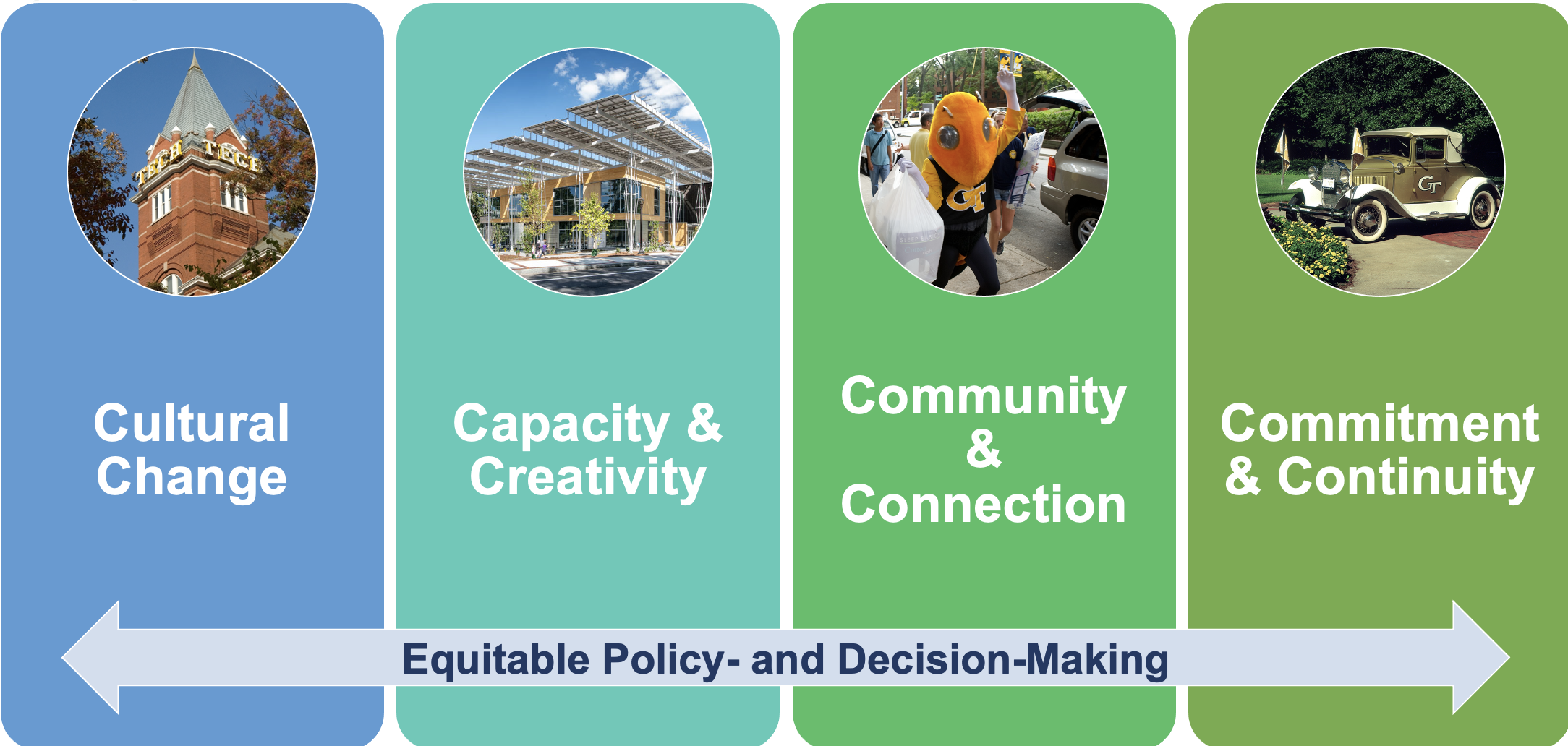The four “umbrella” goals shared in both Roadmaps are:

Goal 1: Cultural Change
Catalyze cultural, transformational change at Georgia Tech so that the places, practices, policies, protocols, people, and philosophies that have a demonstrated positive contribution to well-being are adopted, advanced, expanded and/or strengthened, while those aspects of Institute culture that impede health and wellness are minimized.
Goal 2: Capacity and Creativity
Continue to improve the quality of and ease of access to equity-literate clinical care and intervention while also improving programs and services that focus on the primary prevention of health-related symptoms, diseases, and disorders; the promotion of wellness in a holistic manner; and the creation of conditions which cultivate and sustain well-being, inclusive of all identities and backgrounds.
Goal 3: Community and Connection
Increase, expand and generate broader awareness of and access to student, staff and faculty engagement experiences across Georgia Tech that contribute to and facilitate the factors that comprise well-being, including sense of belonging and connection, happiness, resilience, self-awareness, and self-efficacy, as well as support living and leading in a manner that is consistent with one’s personal values.
Goal 4: Commitment and Continuity
Appoint an ad hoc study group comprised of a diverse range of Institute-wide constituents and representative of all Georgia Tech community stakeholders – including but not limited to students, faculty, staff, administrators, and alumni – to review the feasibility of formally adopting (or adapting) the action framework for higher education that is outlined in the Okanagan Charter: An International Charter for Health Promoting Universities & Colleges and subsequently incorporating the framework into Georgia Tech’s ongoing administration, culture and operations for the foreseeable future, beginning no later than 2030 when the prevailing Institute Strategic Plan period is slated to end.
The goals and action strategies outlined in these Roadmaps are based on a philosophical assumption that health, wellness, and well-being are the results of a complex, complicated and sometimes unpredictable interplay between numerous conditions and factors at the individual, community, organizational and societal levels. As a result, these Roadmaps advances a cultural change model of change - one which necessarily requires the interest, investment, involvement, and innovation of all cabinet areas, colleges, divisions, and departments - or collective impact.
(text and background only visible when logged in)
